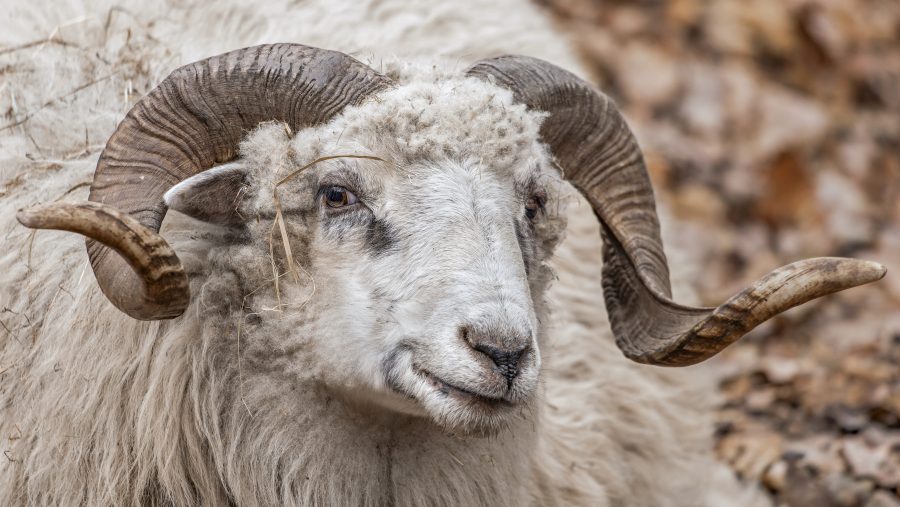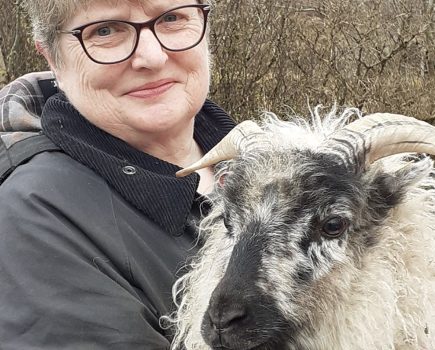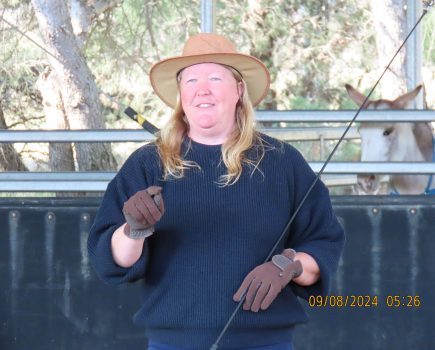Ready to start breeding sheep this year? In this article extract taken from the September issue of The Country Smallholder magazine, Liz Shankland has some advice on how to select the best ram for the job…
New smallholders just love buying stuff. Machinery, tools, work clothes, trees – you name it and it will be somewhere on the shopping list. Most exciting of all, of course, is going shopping for livestock, and this is the time of year when attention turns to the ram sales.
If you’ve followed my advice and learned to be a sheep owner before becoming a sheep breeder, you should be well-prepared by now and ready to take the next step. Always remember that, whatever species you decide to take on, it’s important to know how to look after those animals before you start thinking of creating more.
Buying your own ram – or “tup” as you will often hear it called – is a significant purchase, and your choice can have a massive impact on your lambs. There are lots of old adages bandied about in farming circles, but the saying, “A tup is half your flock” is worth remembering. However good your ewes are, your tup will provide half the genetics of every lamb your ewes produce, so your decision can improve or weaken your flock.
WHERE AND HOW TO BUY
If you’re new to sheep, start by going back to the person who sold you your ewes. They should be able to give you advice on where to go to find an unrelated tup suitable for your needs. Unless you really know what you’re doing, buying direct from a breeder who has been recommended is always the best bet, and much less risky than turning to online adverts or buying at auction. Social media has its benefits, but buying from a breeder with experience and a good reputation means you will be getting good stock and, hopefully, some after-sales advice if you need it. Good breeders love sharing their knowledge and helping new stock keepers – and they won’t be tempted to palm you off with ropey old animals, because they have a reputation to protect. Buying direct is much safer in terms of biosecurity, compared to buying from a large sale which may attract hundreds of animals from many different farms with varying health standards.
During late summer and early autumn, lots of breeders will be sorting out surplus stock to sell, either direct to buyers, or at local livestock markets or specialist breed sales. Among those animals will be some of this year’s tup lambs which may be for sale because they are either simply surplus to requirements or not suitable to keep because they cannot be bred back to their mothers.
So should you take a chance on buying a tup lamb, rather than looking for something older? There are pros and cons. It can be a worthwhile gamble, as it can be cheaper than buying an older tup, and he will have youth on his side. The thing you don’t know (unless you are willing to pay for tests) is whether or not he is fertile – or, indeed, whether he will know what to do.
Some youngsters can feel too intimidated by older ewes to make a move; sometimes young tups are just not the right size match for the ewes, making mounting a bit tricky. Also, research carried out in the United States revealed that up to 10% of tups would not mate with ewes, but preferred to mount other males; same-sex preferences occur in many species.
Lots of people prefer to buy a tup with breeding experience and a proven track record of producing good lambs; if you are planning to breed from any ewe lambs (i.e.females that have never lambed before), a proven tup is the better choice.
This article extract was taken from the September 2023 edition of The Country Smallholder. To read the article in full you can buy the issue here.
To receive regular copies of The Country Smallholder magazine featuring more articles like this, subscribe here.
For FREE updates from the world of smallholding, sign up for The Country Smallholder newsletter here.








